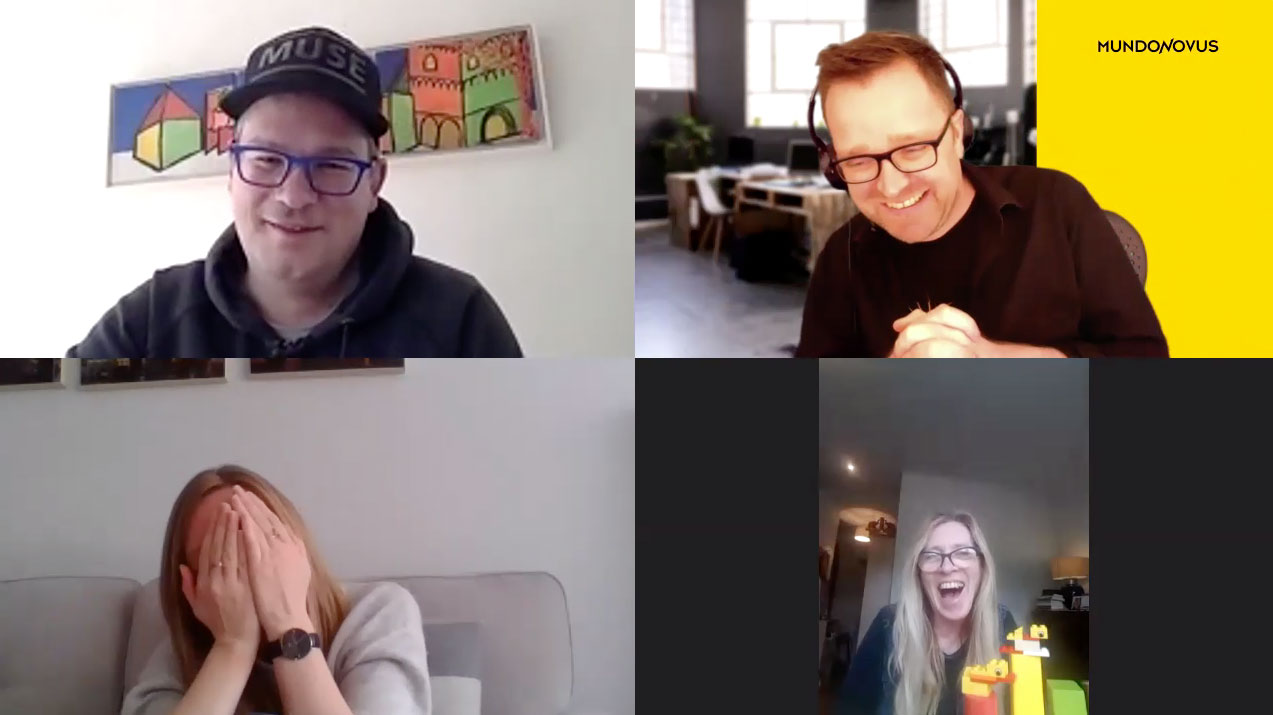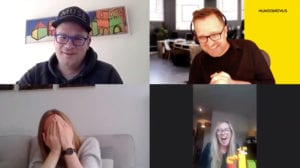Building mental health with fun and play
Laughter helps to allay stress and anxiety

It is a joke as old as time.
Four people meet on a Zoom call. One from Brighton, one from Athlone, one from the Netherlands and one from Liverpool. Much laughter ensues.
They all leave in a better state of mind ready to tackle their day.
On Tuesday the 24th of March 2020, I was joined by three people from remote parts of Europe including one person from the Netherlands, one from Brighton UK and one from Athlone in the Republic of Ireland for a Zoom call. The call was aimed at uniting the team in having some fun and laughter using games (mainly from the Improv world). This was an experiment in whether we could find a moment to play even in our isolation.
There is a lot of research into the effects of fun and laughter on the brain. It has been found in the work of Dr Lee S Berk that laughter can help suppress the stress hormones Cortisol, Epinephrine and Dopac. These hormones are responsible for those feelings of anxiety we may feel, especially in times like this. There is also a positive effect in the creation of HGH (Human Growth Hormone) which helps to boost the immune system. [https://www.sciencedaily.com/releases/2008/04/080407114617.htm]
We had some fun and laughter with particular high points being the discovery of Annette as the Warrior Queen of a Diamond Mountain and the shared wisdom on changing a bike tyre that brought us the phrase “Never, ever do not attempt to play with yourself”. I’m still puzzling over the logic in that.
The moment I loved the most was when the phrase “Playing is all I want to do everyday” emerged from a shared moment.
Thanks Martin and the team. It was the best fun I had in a long time
– Annette Josephine Mulvihill
Get in touch with us and we can help your teams build social capital and release stress whilst also exercising new ways of collaborating, listening with intent and relating to one another in a distributed workplace.
